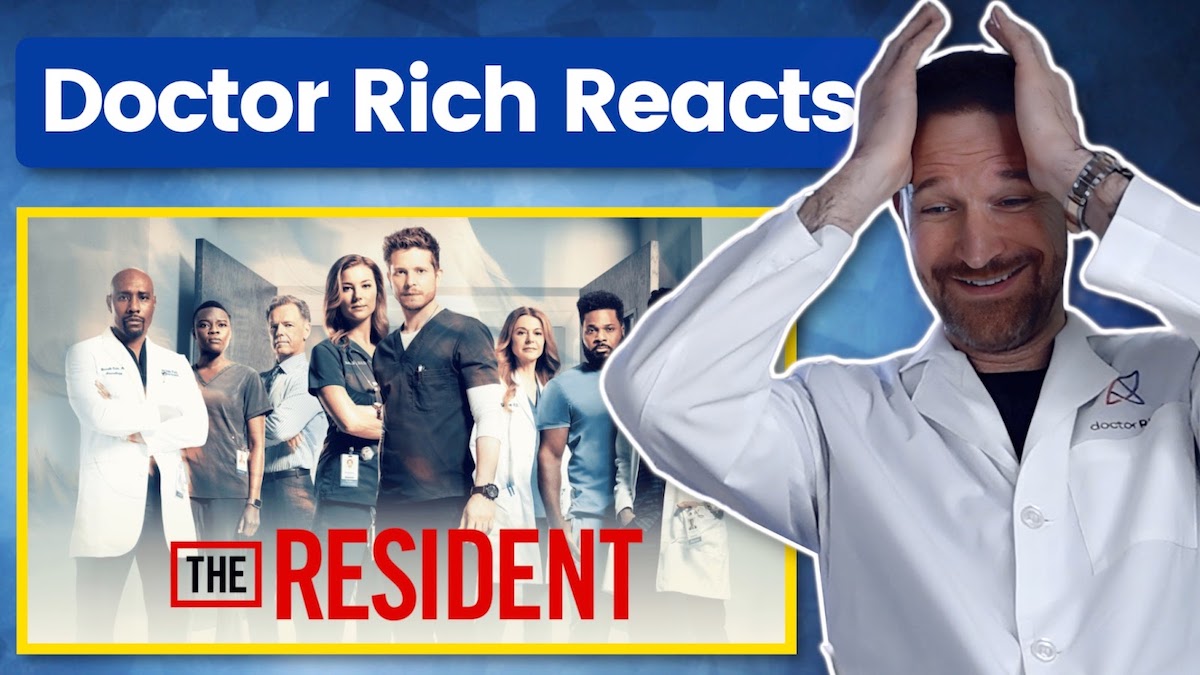Don’t have time to read this post? Watch the video here instead!
[Video plays of Administrator handing a trophy to the ER physician, to thunderous applause. In the audience, two doctors have a whispered conversation. All parts are played by Dr. Glaucomflecken]
Hospital Administrator:
It is my distinct pleasure to introduce the golden consult award to our own Emergency Room Physician. Congratulations, sir!
Doctor 1:
Hey, what’s the “Golden Consult Award?”
Doctor 2:
Oh, he called the perfect surgery consult.
Doctor 1:
What’s the perfect surgery consult?
Doctor 2:
Well, you can’t consult surgery too soon — or the patient won’t be sick enough to need surgery. And then the surgeon will get mad at you.
Doctor 1:
Okay…
Doctor 2:
But you can’t consult them too late… or the patient won’t be alive. And then the surgeon will be mad at you.
Doctor Rich [laughing]:
So in general, surgeons DO have a reputation of being… um… a little bit “curmudgeon-y” when it comes to dealing with emergency room hits or consults from the emergency room. That being said, there are exceptions — and many surgeons are actually very nice (as you can check out in the link for this video here).
So most emergency physicians understand that there’s an art to the consultation process — in any specialty, but particularly for surgery. The surgeons really don’t wanna be bothered, and if you consult them too early — they’re going to think that you’re wasting their time. And surgeons in general are very protective of their time! They’re very efficient — they don’t want to be doing anything but surgery — and if you’re calling them (and it’s not for something that pretty definitely needs surgery), they’re generally not too happy.
On the other hand, patients can get sick very quickly. There are intra-abdominal processes (appendicitis, or maybe a surgery complication where a patient has an injury to some vital structure like a ureter), and they can get sick. And so as you’re observing that patient and making your preliminary diagnosis, (if you wait too long) the patient can get very ill. And then the surgeon, of course, will be mad that you didn’t consult them early enough.
Doctor 1:
That sounds hard to get right!
Doctor 2:
Oh, for years, scholars have thought the perfect surgery consult was impossible.
Doctor 1:
Really?
Doctor 2:
Oh yeah! They assume the only two outcomes for a surgery consult were surgery being mad at you — or surgery being mad at you for a different reason.
Doctor 1:
Okay… so for a perfect consult, all you’ve got to do is consult them at the exact right time?
Doctor Rich:
Emergency room physicians often get the bad rap of just wanting to clear patients, get them out of the ER, and “turf” them to one specialty or another. Other specialists will refer to them in a pejorative sense as glorified “triage nurses.” That’s, you know, “What is your skill?” “Being able to pick up the phone and call another specialist!”
On the other side of that coin, surgery has this stereotype (or persona) of feeling superior to all the other specialties. They’re — after all — saving lives every day! Blood and guts in their hands and intervening in a medical, surgical emergency. They’re taking someone who would’ve died and literally saving their lives. To that end, they don’t want to be bothered by anything that is not essentially a life-threatening emergency. And they can have a reputation for being angry, having a short temper — and having very little patience for having any conversation with anybody that doesn’t directly relate to doing surgery and saving someone’s life.
Doctor 2:
Oh no… the consult length has to be perfect as well!
Doctor 1:
What does that mean?
Doctor 2:
Well, if the consult’s too long, the surgeon will lose interest and tell you that it sounds like the patient should be admitted to medicine.
Doctor 1 [affirmatively]:
Huh! Okay!
Doctor 2:
But it can’t just be a one word consult like we give to ortho.
Doctor Rich [laughing]:
And that’s not untrue!
So internal medicine (and all of the medicine subspecialties like nephrology and neurology) are very cerebral specialties — where every single detail of the patient’s case has to be poured over to determine if it has relevance (and how that’s going to affect their treatment). Whereas with surgery — you know — they want to know the disease process, the organ that’s affected… and how they can cut it out to make it better! And on the far end of the surgery spectrum, you have orthopedics — which essentially is the most “neanderthal” of all the specialties and can’t process more than two word consults: “Broken bone…”
[Slowed-down audio of Doctor Rich saying “Broken bone.”]
…which is wildly ironic because all the orthopedic surgeons had to be the smartest people in their entire med school class to match into a very, very competitive orthopedic specialty. And then the second they start or finish their orthopedic fellowship — they forget everything about medicine except “broken bone.”
Doctor 1:
How many times has this award been given out?
Doctor 2:
Oh, this is the first time!
Doctor Rich:
Thanks for watching! I hope you found this educational and entertaining. Please share with a friend — and please like and subscribe!




